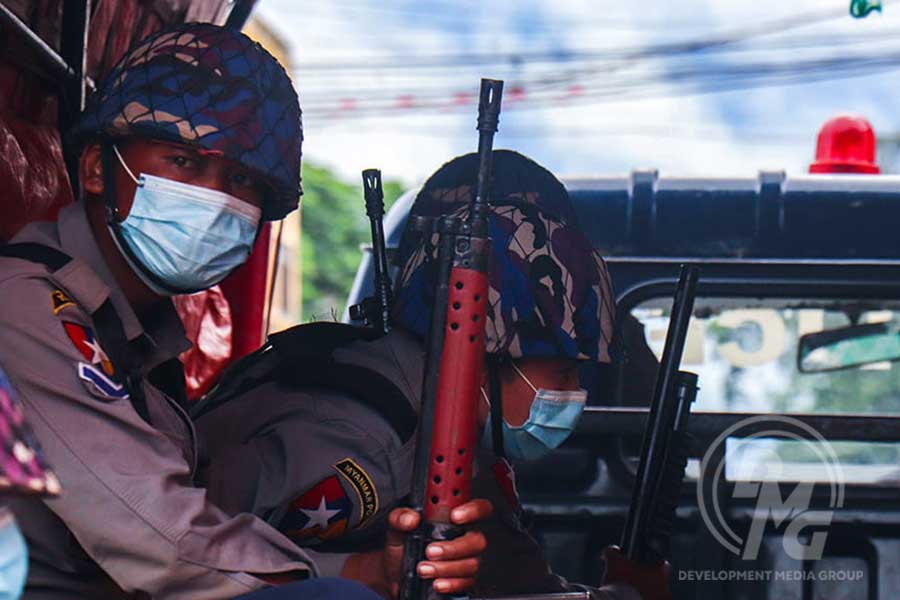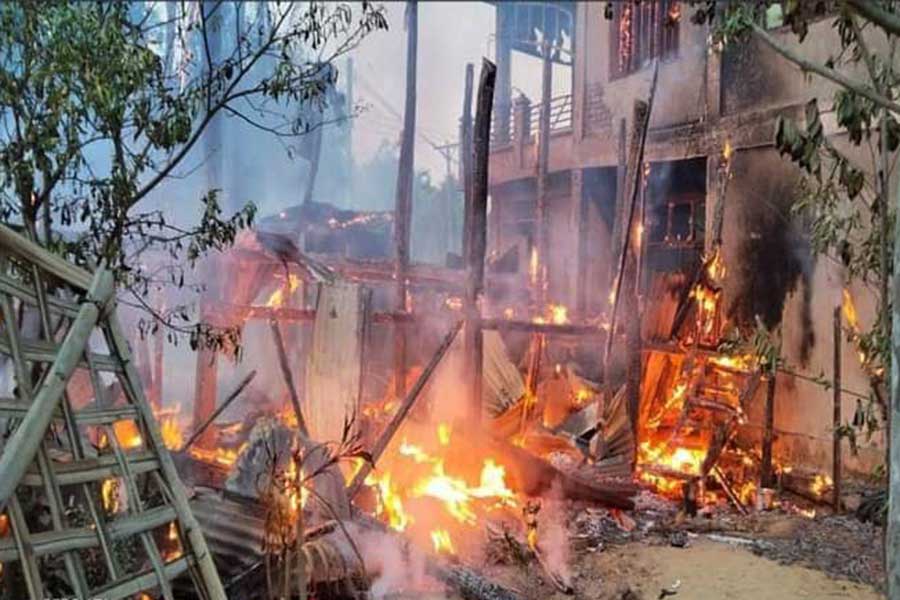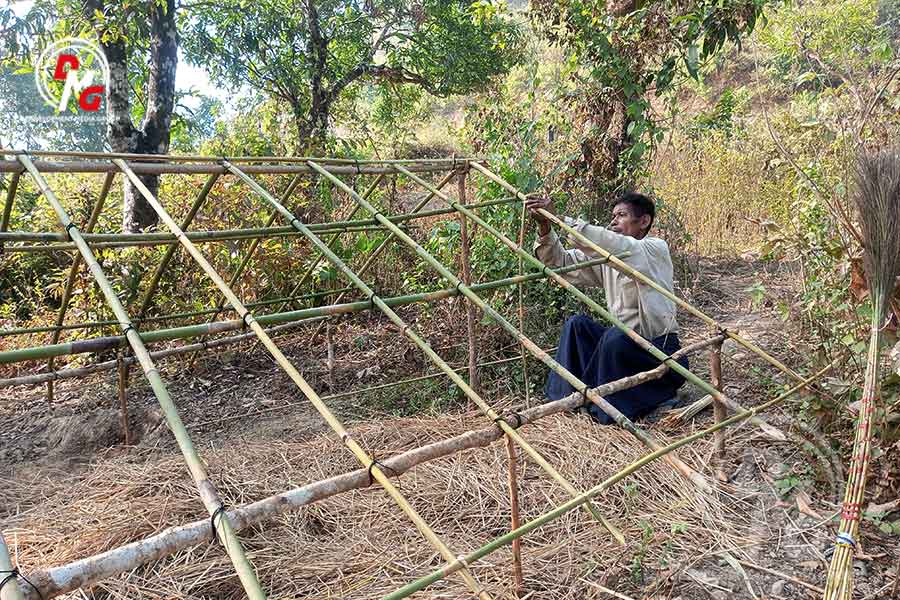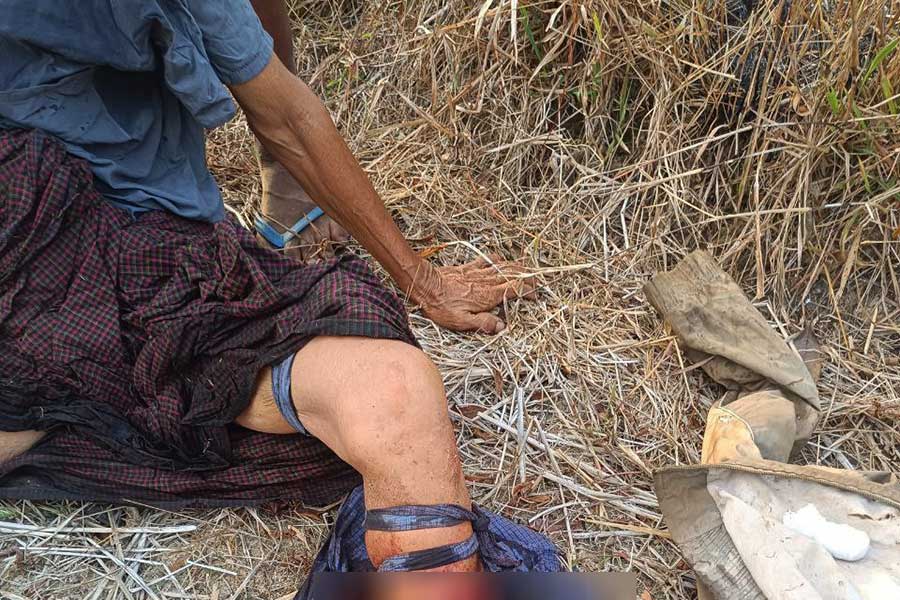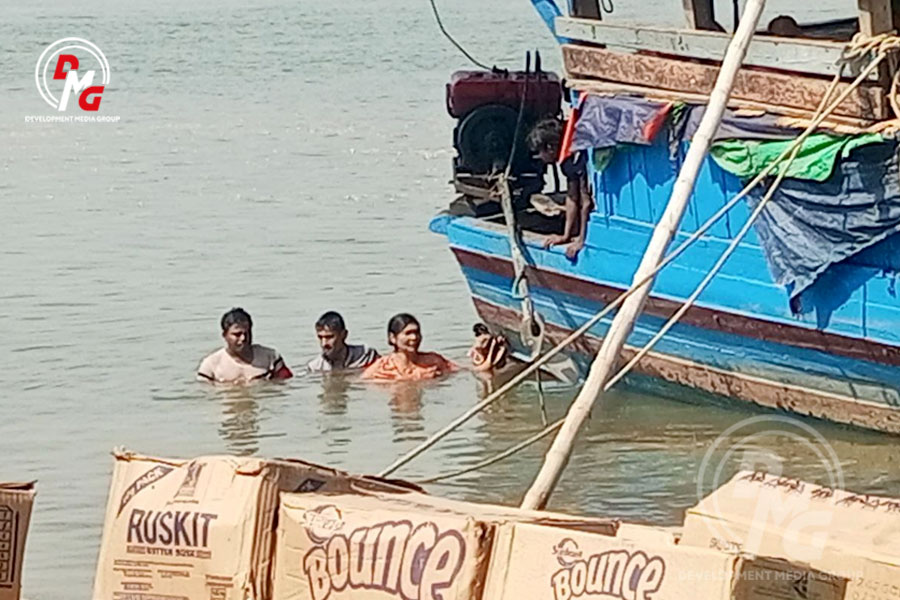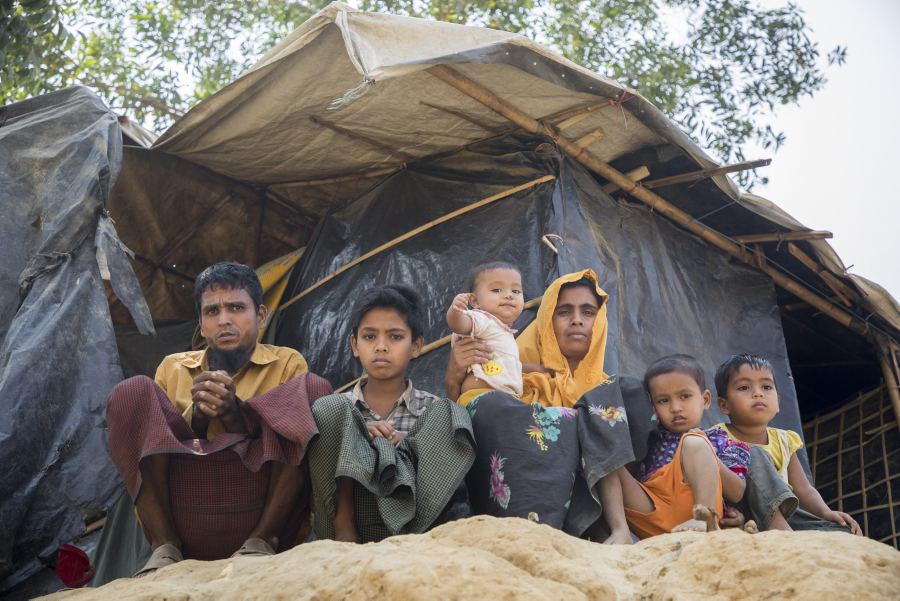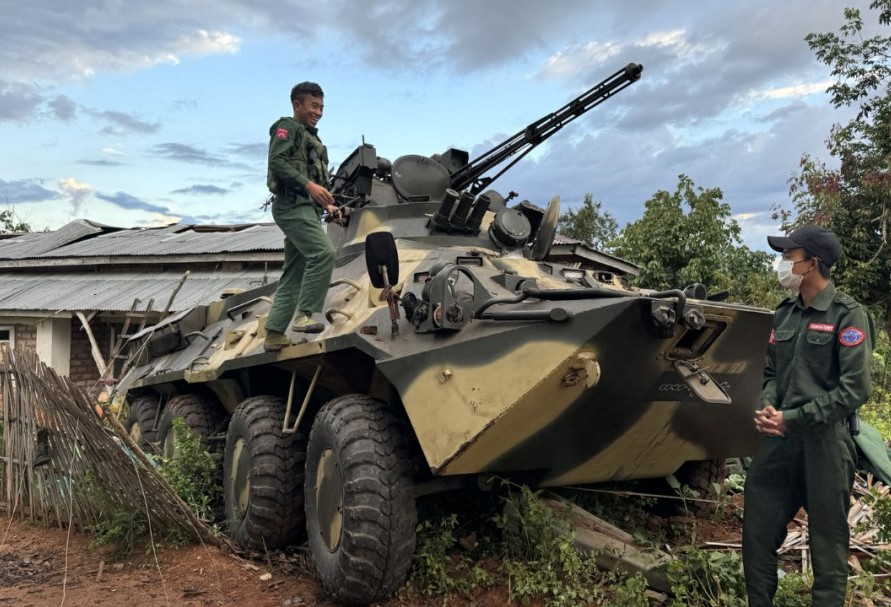- Thousands of houses torched, bulldozed by junta in Buthidaung
- Driver killed, two injured as junta soldiers open fire on bus in Thandwe Twsp
- Regime shelling kills two civilians, injures another in two Arakan State townships
- Septuagenarian loses leg in landmine explosion in Kyaukphyu Twsp
- Muslim communities accuse regime of stoking racial strife
Relocation mandate worries squatters in Sittwe amid pandemic
The inhabitants of 27 houses built within a compound designated for religious purposes in Sittwe have been given three months to move from the area, but they are struggling to relocate amid the COVID-19 pandemic, residents said.
31 Dec 2020
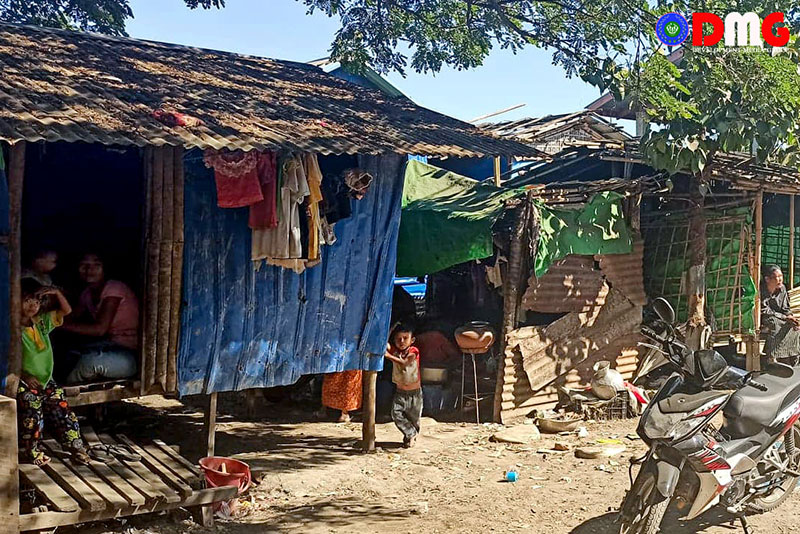
Myo Thiri Kyaw and Kyaw Thu Htay | DMG
31 December 2020, Sittwe
The inhabitants of 27 houses built within a compound designated for religious purposes in Sittwe have been given three months to move from the area, but they are struggling to relocate amid the COVID-19 pandemic, residents said.
The area in the Arakan State capital is used for holding funerals for monks, and in 2000 the Sittwe Township Sangha Committee decreed that no one be allowed to live there.
Monks affiliated with the area in question called a meeting with the houses’ inhabitants on December 22 and they agreed to relocate by March 31.
“We have been living here for seven years. We do not have land or a home in other areas. We are told to move out from the religious area, but we cannot get a house to rent amid COVID-19,” said U Tun Naing.
“And we are facing a financial crisis to rent a house. We need to pay K50,000 [$37.50] as advance payment. We are daily wage workers and we cannot afford to pay it,” he said.
People living on the land, which is owned by a local monastery, are having a hard time with the relocation because many are unemployed as the pandemic continues to hobble the economy, they said.
“For people who are living here, not having a place to live is more difficult than having nothing to eat,” said Daw Lat Lat Tun, who is originally from Thandwe Township and is now living in the monastery-owned area.
Other dwellers are from Kyauktaw, Mrauk-U, Kyaukphyu, Buthidaung and Sittwe townships.
U Win Myint, the Arakan State minister for Municipal Affairs, indicated that he was open to providing assistance to those soon to be displaced.
“If they submit a petition to the state government, I will do something for them as we should do,” he said.

